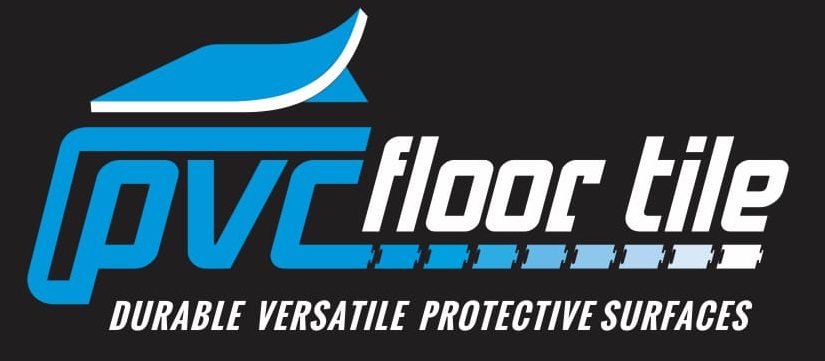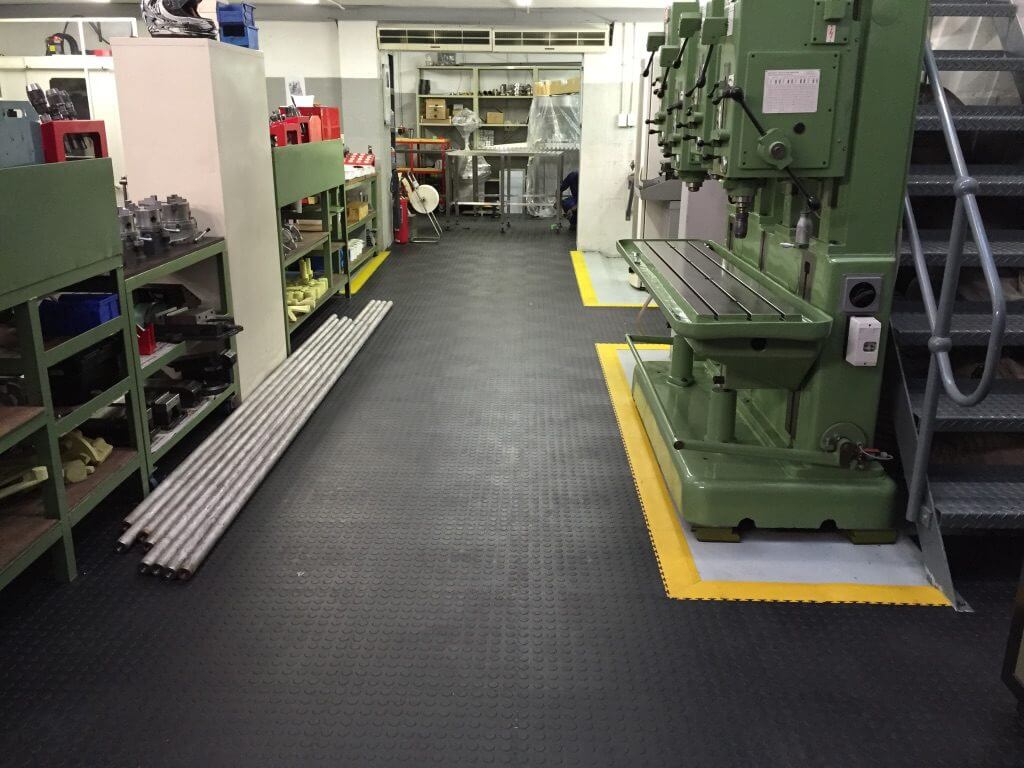
The most difficult decision for factory owners and managers is how to decide on the best factory floors. There are many choices the decision makers can decide on depending on various factors at the disposal.
Questions that need to be asked when deciding the perfect factory flooring
- What is the best flooring for factory?
- Which flooring is the best for industries?
- Which flooring is used in steel factories?
- What is the strongest factory flooring?
Answers: Best factory flooring are made of hard concrete, Epoxy and interlocking rubber tiles same with normal warehousing flooring.
Whether industries or steel factories both needs the strongest flooring which lies in the epoxy and rubber interlocking tiles. Though Pvc interlocking tiles is much cost effective than epoxy.
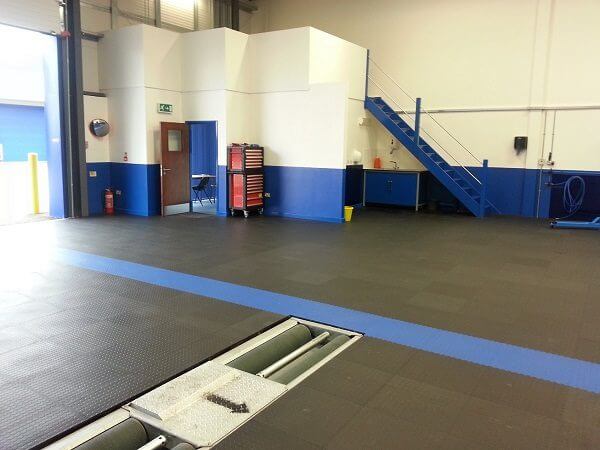
Why should you our Rubber Interlocking tiles for Factory Flooring:
- Our standard tiles are eco-friendly made from recycled Pvc material
- The rubber tiles mats can be installed, uninstalled, and reused somewhere else
- Ideal for material handling and engineering factories
- It provides safety to employee movements as the tiles provides anti-slip surface
Pvc Floor Tile Technical Specifications
- Material- Pvc
- Weight -5.2kg
- Tile Size: Length 500mm, Width 500mm, Thickness 5mm
- Relative Density -1.53 g/cm3
- Tensile Strength- 13.2 MPa
- Fire Retardancy – 6.2 Seconds
- Temp(0C)-155/150/145/140
How to decide on the best factory flooring concept
Factors to consider for a factory floor are:
- Budget
Budget for factory floors plays a major role in the type of flooring one should consider. Cost of flooring should include installation and after installation maintenance
- Durability
By nature, factory flooring durability should be considered. Though the budget factor will impact on durability
- Factory floor purpose
The activities that are being carried out in the fact. Heavy duty usage such as heavy vehicular movement requires factory flooring to be made of epoxy, Alternative rubber interlocking tiles should be considered, most flooring such as wooden, porcelain and others will not work.
- Factory floor traffic
Factory traffic will vary from place to place but the heaviest floor traffic needs to be considered, if budget allows the flooring can be uniformly applied.
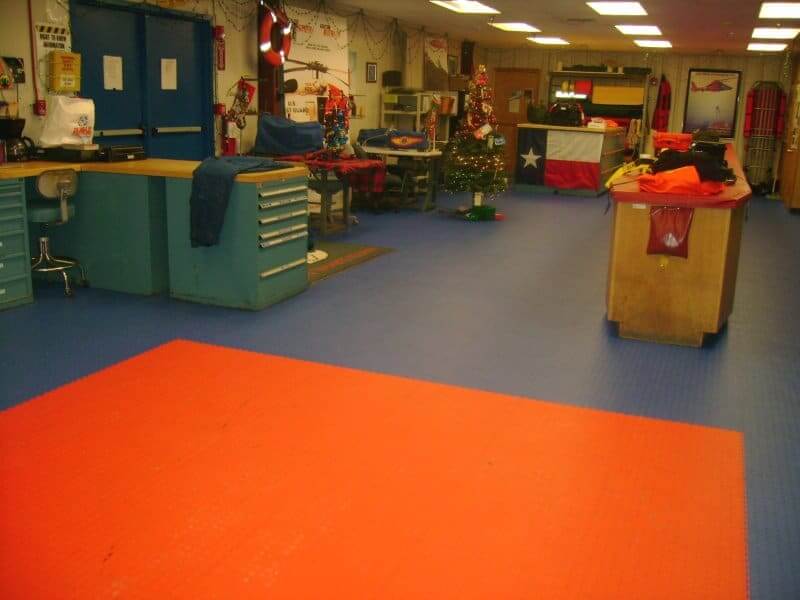
We as Pvc floor Tile Company specializes in the Rubber Interlocking mats; we will articulate why you should use the less costly but effective solution.
Qualities of Interlocking rubber mats
- Acoustic and fire retardant
- High tensile properties
- Dust reduction
- Resistant to most chemical components
- Easy to maintain and cleaning
- Non-slip properties
- Suitable for Vehicular movement
- Easy install, uninstall and reinstall
- Suitable for DIY Installation
Present a perfect appearance
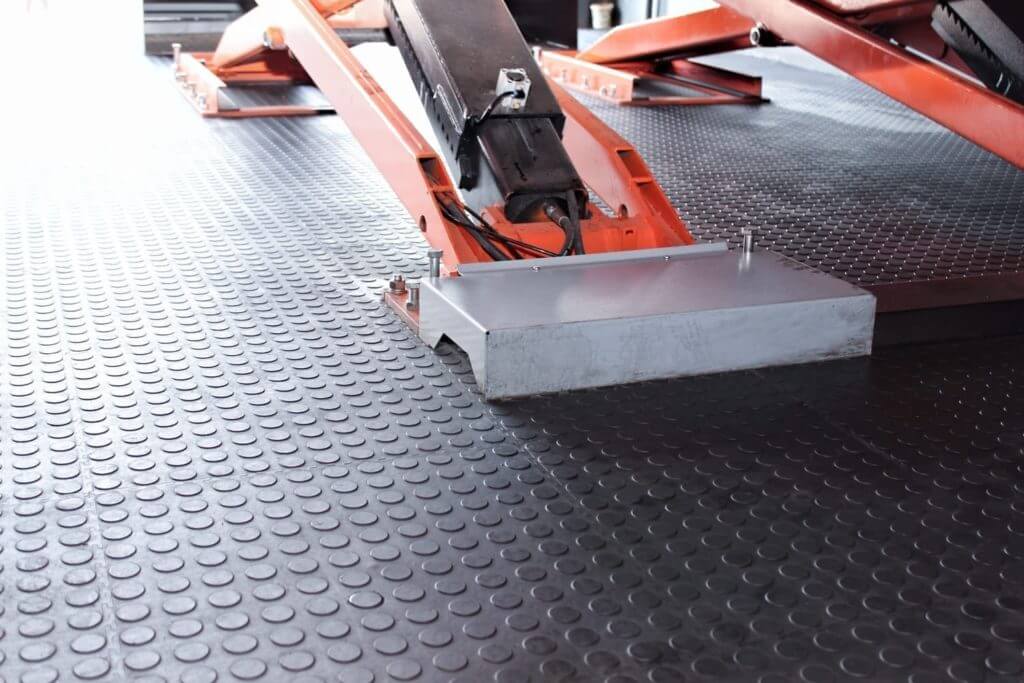
Sustainability in Rubber interlocking mats
- Can be recycled when its life span ends and re-used again for the same purpose
- Provides cost effectiveness and hence continue to contribute to lowering maintenance costs
Certain parts of factory flooring without vehicular movements can be installed adhesive free hence helps environmental friendliness.
Recommendations:
- It’s a must to use recommended adhesive A660 when there are vehicle movements such as forklifts, motor vehicles, trucks etc. and pallet jacks dragging
- Use of Pvc Pvcocity Sealer in wet areas such as bathrooms. A once off procedure
- Recommended to use Pvcocity Polish for a shine look and feel every 3 -6 months depending on traffic
- Recommended to use adhesive for long durability in non-vehicular
- Non-adhesive only applies to tiles that are 7mm and above
- Consider use of edging strips for a fine modern finish and last tile row durability
- Non-use of color Tiles in heavy traffic areas
